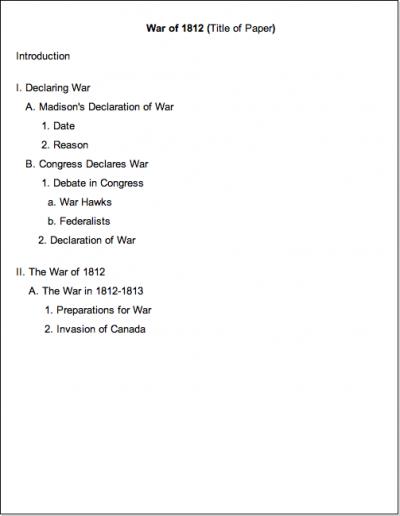Writing an essay for an exam
You need a main line of argument that will form the backbone of your essay. At some time in your undergraduate career, you’re going to have to write anessay exam. – Writing a good essay requires the writer to know what to write. It will save you time overall and will mean you do most of the thinking at the start, allowing you to spend the rest of the time writing. Plan – Now you have to organise the ‘mess’ that was your brainstorm into a well structured essay. Answer the question – Now that you are aware of the demands of the question and have some ideas, you have to think about your answer.
Is it asking for causes to be evaluated or for a discussion of two sides of an argument. Decide whether the question is asking for a thematic approach, or chronological. You may think that this is a huge chunk out of the time available but it is time well spent. They might remind you of other things too. Catch the examiner’s eye – Your essay will be one of possibly hundreds that an examiner has to read and mark. So you will need to have worked hard in your studies, and done some effective revision.
They might remind you of other things too. Decide whether the question is asking for a thematic approach, or chronological. Catch the examiner’s eye – Your essay will be one of possibly hundreds that an examiner has to read and mark. If you know a bit about the essay topic, a good essay style can hide some of your inadequacies. Simply write down everything you can think of in brief notes and in no particular order just to get it out of your mind and on to paper.
Start to order the paragraphs and try to see natural links between points or paragraphs to help the flow of the essay. You need a main line of argument that will form the backbone of your essay. Plan – Now you have to organise the ‘mess’ that was your brainstorm into a well structured essay. Writing a good essay requires synthesis of material that cannot be done in the 20
-30 minutes you have during the exam. Simply write down everything you can think of in brief notes and in no particular order just to get it out of your mind and on to paper.
Aim to spend roughly 10 minutes . It will save you time overall and will mean you do most of the thinking at the start, allowing you to spend the rest of the time writing. Aim to spend roughly 10 minutes (or more) planning and thinking. So here are some ways to do this:. Writing a good essay requires synthesis of material that cannot be done in the 20
-30 minutes you have during the exam.
Also popular information:
- Who actually writes papers
So you will need to have worked hard in your studies, and done some effective revision. 10 minutes – You
will have a specified time to write each essay. Elliot Richman provides a useful strategy for the ultimate test. If you know a bit about the essay topic, a good essay style can hide some of your inadequacies.This thought can inspire a fair amount of fear: we struggle enough
with . No doubt examiners are all very professional and read each one thoroughly, but it doesn’t hurt to give them a hand by making it easier for them to mark (and easier for them to give you more marks). If you know a bit about the essay topic, a good essay style can hide some of your inadequacies. You can organise it later but initially you will have a record of relevant points and information to include. You need a main line of argument that will form the backbone of your essay.So you will need to have worked hard in your studies, and done some effective revision. ArrayIn the days before the exam, you should . Catch the examiner’s eye – Your essay will be one of possibly hundreds that an examiner has to read and mark. A rough guide to your plan should be:
Introduction – Introducing your understanding of the question, how you plan to tackle it, what you are going to include and what your main line of argument is
(optional)1 paragraph – Providing context (linking intro to rest of essay)
4 paragraphs – Each of a reasonable length discussing a single issue/factor (or combination of)
Conclusion – Summarising the main arguments made in your essay and ending with your main argument. When you write the essay itself, you need to have clear arguments, to be aware of the issues and be able to back up analytical points with appropriately selected information and evidence and some historians’ views. 10 minutes – You
will have a specified time to write each essay.You need a main line of argument that will form the backbone of your essay. So you will need to have worked hard in your studies, and done some effective revision. Is it asking for causes to be evaluated or for a discussion of two sides of an argument. When you write the essay itself, you need to have clear arguments, to be aware of the issues and be able to back up analytical points with appropriately selected information and evidence and some historians’ views. It will save you time overall and will mean you do most of the thinking at the start, allowing you to spend the rest of the time writing.
When you write the essay itself, you need to have clear arguments, to be aware of the issues and be able to back up analytical points with appropriately selected information and evidence and some historians’ views. If you really know your stuff, you should end up writing an excellent essay rather than just a good essay. Answer the question – Now that you are aware of the demands of the question and have some ideas, you have to think about your answer. If you know a bit about the essay topic, a good essay style can hide some of your inadequacies. But – A good essay style will help you make the most of what you know. A rough guide to your plan should be:
Introduction – Introducing your understanding of the question, how you plan to tackle it, what you are going to include and what your main line of argument is
(optional)1 paragraph – Providing context (linking intro to rest of essay)
4 paragraphs – Each of a reasonable length discussing a single issue/factor (or combination of)
Conclusion – Summarising the main arguments made in your essay and ending with your main argument.You may think that this is a huge chunk out of the time available but it is time well spent
You may think that this is a huge chunk out of the time available but it is time well spent. Aim to spend roughly 10 minutes . But – A good essay style will help you make the most of what you know. If you know a bit about the essay topic, a good essay style can hide some of your inadequacies. Plan – Now you have to organise the ‘mess’ that was your brainstorm into a well structured essay. They might remind you of other things too.



A non-circulating archival copy (prior to 2010) is held in the Rare Book & Manuscript Library, but a circulating copy can often be located in other libraries. To begin searching for dissertations, use the Advanced Search in our online catalog to search by author, title, subject or department. Illinois Online Catalog: All dissertations are now deposited into the University of Illinois institutional repository, IDEALS. The Illinois library should have at least one copy of all dissertations deposited at Illinois prior to 2010. However, for past years, you may need to search the Online Catalog for a paper copy.
Child Care Center: As part of the Child Care Center Roof Replacement Project, 7 parking spots on 13th between Adams and Washington will be closed July 6 – Aug. Additionally, three parking spots in the Child Care Center parking lot will be used for staging (View Map) during this same time.
A CASE STUDY OF: A PRINCIPAL PREPARATION PROGRAM IN ONE SCHOOL DISTRICT By Donald E. Robertson Travis Twiford, Chair Educational Leadership and Policy Studies.
Before we get to an amazingly candid recent use of this term in The Washington Post, let’s pause once again to reflect on the following wisdom from one of America’s top scholars on religion and philosophy, drawn from one of my “On Religion” columns (“Define fundamentalist, please”).
Com – custom writing service that provides online custom written papers, such as term papers, research papers, thesis papers, essays, dissertations and other custom writing services inclusive of research material, for assistance purposes only. These custom papers should be used with proper reference.
Readers will be interested in reading the rest of the essay to see how you support your point. A good strategy for creating a strong thesis is to show that the topic is controversial. This is a strong thesis because it shows how your experience contradicts a widely-accepted view.
For further practical help and in-depth advice, see our Writing essays study guide. Have a look at this slide show for ten top tips on how to write an effective essay.
Buy Dissertations – Buy online custom dissertation for sale. Purchase dissertation and get 2:1 standard.
If it creates doubt in the mind of your advisor in any way then avoid going buying dissertation from that company. The dissertation writing service should have the privacy policy that provides appropriate contractual means to establish a comparable level of protection for personal information. This can be simply understood by example that it’s not wise to have a Shakespeare to do a 10th Grade story writing. However, the other side of the question’s consideration is about how secure the company policy is. The utter professionalism of a writer depicts his capability of matching your language skill and academic level. If you have made a decision to buy dissertations, then the above is the most important question to be taken in to the consideration. To get certainty of the above dubious confusions, you can ask for a little dissertation sample in your area of subject and get them check by your advisor.